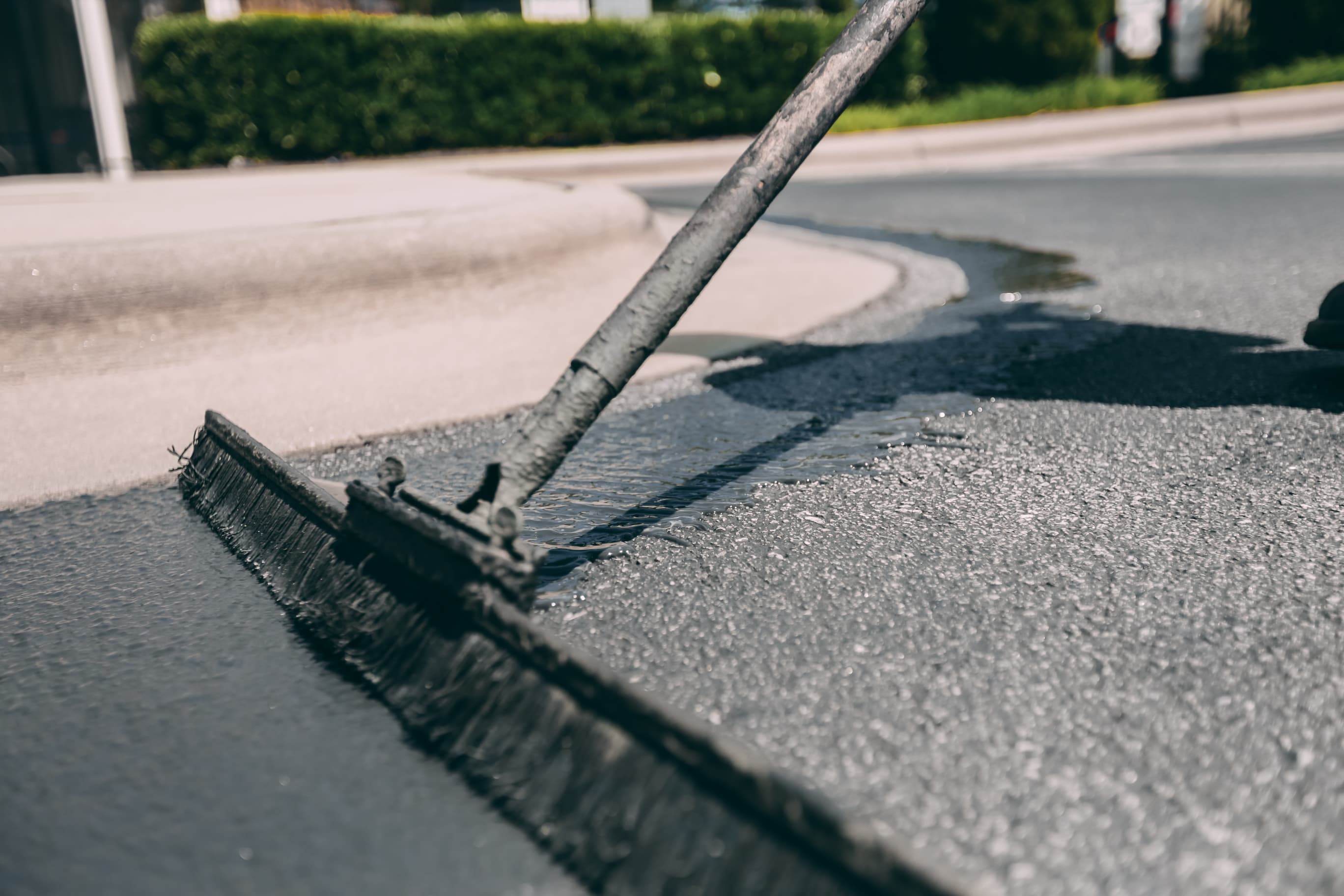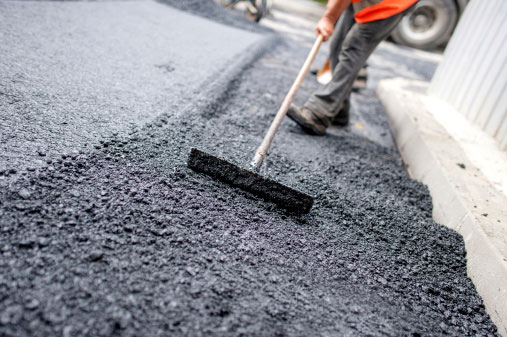Durable Results: Asphalt Spot Repair Via Precision Sealing
Durable Results: Asphalt Spot Repair Via Precision Sealing
Blog Article
Cold Mix Asphalt Vs. Hot Mix Asphalt: Which Is Right for You?

Composition Differences
Cold mix and warm mix asphalts differ substantially in their make-up, with distinctive characteristics that impact their performance and applications. Cold mix asphalt is created by emulsifying the asphalt binder with water and an emulsifying representative prior to blending it with accumulation. This method permits the asphalt to be practical at reduced temperatures, making it excellent for temporary fixings and for usage in cooler climate conditions. Hot mix asphalt, on the various other hand, is produced at high temperature levels, typically in between 300-350 ° F, which helps to achieve far better compaction and a more resilient last item. The hot mix asphalt production process entails heating the aggregate and asphalt binder separately before incorporating them at the asphalt plant.
Additionally, chilly mix asphalt has a tendency to be much less dense and a lot more flexible than warm mix asphalt. This adaptability makes it far better suited for areas with higher levels of motion, such as driveways or roadways with rush hour. On the other hand, warm mix asphalt is known for its high toughness and resistance to rutting and breaking, making it a favored selection for highways and high-traffic roads where longevity is crucial.
Installation Refine Variances
The procedure of setting up cold mix and hot mix asphalt displays significant differences in their procedures and demands. In comparison, warm mix asphalt requires a much more sophisticated installment procedure. Due to the home heating demands, warm mix asphalt installments are usually brought out by specialists with specialized tools, ensuring an extra permanent and structurally sound outcome.
Toughness and Longevity Elements
When taking into consideration asphalt choices, toughness and long life are crucial aspects to assess for lasting pavement efficiency. Hot mix asphalt (HMA) is understood for its remarkable longevity and durability.
In regards to longevity, HMA commonly outmatches CMA as a result of its premium toughness and resistance residential properties. HMA sidewalks have a longer life span, requiring less regular fixings and maintenance, which can equate to cost savings over time. Furthermore, HMA pavements are more easily adjustable to meet details job needs, further improving their sturdiness.
Expense Factors To Consider
Taking into consideration the economic effects is an essential element when examining the option in between hot mix asphalt (HMA) and chilly mix asphalt (CMA) for sidewalk projects. While the preliminary cost of hot mix asphalt is commonly higher than that of chilly mix asphalt, HMA commonly gives a more cost-efficient service in the lengthy run as a result of its remarkable durability and durability. HMA is understood for its capability to stand my sources up to rush hour lots and harsh weather, reducing the requirement for constant repairs and upkeep. On the other hand, cold mix asphalt is extra economical in advance however might need even more frequent patching and resurfacing, bring about higher upkeep expenses gradually.
In addition to material expenses, it's vital to take into consideration the expenditures connected with installation and upkeep when comparing HMA and CMA. HMA typically requires specialized equipment and skilled labor for proper installment, which can influence general project expenses. Conversely, CMA is simpler to work with and can frequently be used using simpler strategies, potentially reducing installation expenses. Inevitably, the choice between HMA and CMA ought to take into account not simply the first expense however also the long-lasting financial effects to determine one of the most cost-effective alternative for the certain sidewalk job.
Environmental Impact Comparison
Contrast of the environmental influences in between hot mix asphalt (HMA) and cold mix asphalt (CMA) discloses distinct differences in sustainability techniques. HMA production requires heats, resulting in increased power intake and greenhouse gas emissions. The procedure additionally releases unstable natural compounds (VOCs) and harmful air contaminants (HAPs) right into the environment. In contrast, CMA is produced and applied at lower temperature levels, minimizing energy usage and exhausts dramatically. The reduced production temperatures of CMA cause decreased fuel consumption and reduced levels of carbon dioxide exhausts, making it a much more eco-friendly option.
Furthermore, the usage of CMA usually entails reusing existing asphalt pavement, promoting source conservation and decreasing the quantity of waste sent click here now to landfills. This recycling facet additionally boosts the sustainability of CMA contrasted to HMA. Overall, when thinking about the ecological impact, CMA becomes a more environmentally lasting option due to its lower energy needs, minimized exhausts, and the capacity for reusing existing materials. By choosing CMA over HMA, roadway construction projects can add favorably to ecological conservation efforts.
Verdict
Finally, the selection between cold mix asphalt (CMA) and warm mix asphalt (HMA) depends upon various factors such as composition, setup procedure, durability, durability, expense, and environmental effect. asphalt patch repair. While CMA supplies a fast and affordable service for small repairs, HMA guarantees superior resilience and longevity for rush hour areas. Think about these elements very carefully to determine which type of asphalt is the best option for your paving needs

Considering the monetary ramifications is an important aspect when assessing the choice in between hot mix asphalt (HMA) and cold Related Site mix asphalt (CMA) for pavement jobs. While the initial expense of warm mix asphalt is commonly greater than that of cool mix asphalt, HMA typically offers a much more affordable option in the lengthy run due to its remarkable durability and long life. cold mix asphalt.Contrast of the environmental impacts between warm mix asphalt (HMA) and cold mix asphalt (CMA) discloses distinctive distinctions in sustainability practices.In final thought, the selection in between cold mix asphalt (CMA) and warm mix asphalt (HMA) depends on various elements such as make-up, setup process, longevity, long life, price, and ecological impact
Report this page